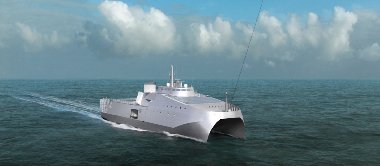LEJUSTE, Mme Aliona (2025) Crack recognition in composites using Deep Learning PRE - Projet de recherche, ENSTA.
Aucun fichier n'a encore été téléchargé pour ce document.
Résumé
This research introduces an AI-based framework for automated crack detection in carbon-fibre reinforced polymer (CFRP) composites using high-resolution X-ray tomography. As CFRPs gain prominence in aerospace, automotive, and maritime fields, accurate internal defect detection is vital for durability assessment and performance prediction. The study develops Python-based algorithms combining rule-based segmentation, machine learn- ing, and deep learning. It scales from small-scale proof-of-concept (20 images) to industrial datasets (1,300 images), tackling computational efficiency and scalability. A hybrid annotation strategy, merging thresholding with manual corrections, outperforms larger but lower-quality datasets, highlighting the decisive role of annotation quality. Results show that domain-specific preprocessing, especially background removal, improves per- formance by 18–20%. The best configuration, VGG19 with Focal Dice Loss, achieves strong validation results (25% loss). Computational analysis underlines the necessity of high-VRAM GPUs, offering 10× efficiency for deployment. This work delivers benchmarks for AI-based monitoring, supports predictive maintenance, and accelerates composite development. Future directions include crack propagation prediction and proactive failure analysis. Keywords: CFRP, crack detection, X-ray tomography, deep learning, image segmentation, annotation quality.
| Type de document: | Rapport ou mémoire (PRE - Projet de recherche) |
|---|---|
| Mots-clés libres: | CFRP, crack detection, X-ray tomography, deep learning, image segmentation, annotation quality |
| Sujets: | Mécanique des fluides et énergétique |
| Code ID : | 10623 |
| Déposé par : | Aliona LEJUSTE |
| Déposé le : | 01 sept. 2025 16:58 |
| Dernière modification: | 01 sept. 2025 16:58 |







